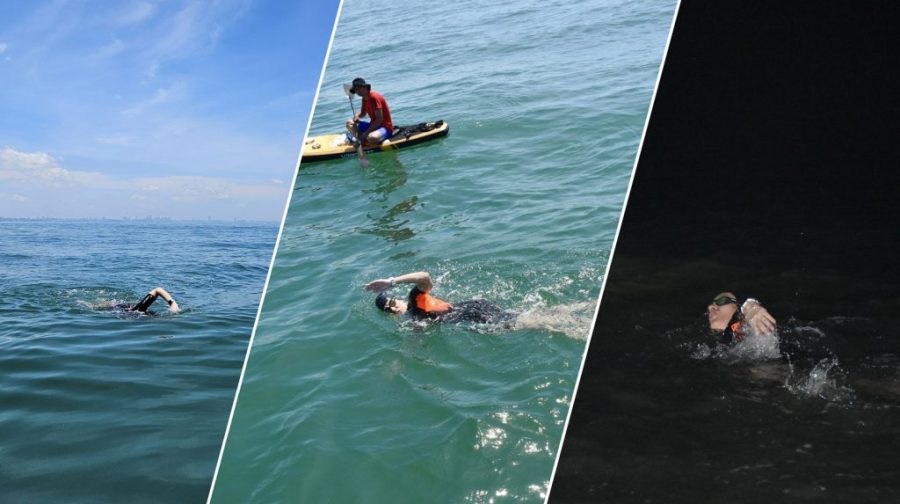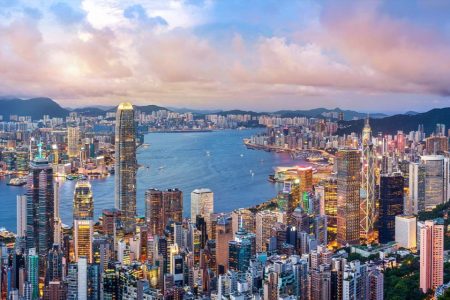As the first Portuguese woman to head a Chinese diplomatic mission, Ana Paula de Menezes Cordeiro is no stranger to breaking barriers. On 17 June, she proved that point once again by capping off her tenure as the Consul-General of Portugal in Guangzhou by swimming almost 30 kilometres across the Qiongzhou Strait, which separates the province of Hainan from mainland China.
In fact, Menezes Cordeiro made history by becoming the first European woman to cross the channel – which is nicknamed ‘the Everest of the Seas’ due to its strong currents, jellyfish and intense sunlight.
The swim was the culmination of a memorable journey for the diplomat that began when she first assumed the post of the Portuguese Consul-General in Guangzhou in September 2021. During Menezes Cordeiro’s three years in office, she helped promote Sino-Portuguese cooperation across a wide range of areas in the consular jurisdictions of Guangdong, Hainan, Hunan, Fujian and Guangxi.
[See more: Portugal sees Greater Bay Area as unique opportunity to boost business presence]
Her tenure ended on 27 June. Menezes Cordeiro will soon be heading back to the Portuguese capital, Lisbon and is due to take on a new role as the Chief of Staff of the Portuguese Minister of Education, Science and Innovation. She took some time off her busy schedule to speak with Macao News about her amazing swim – and what she achieved as her country’s Consul-General in Guangzhou.
This interview has been edited for brevity and clarity.
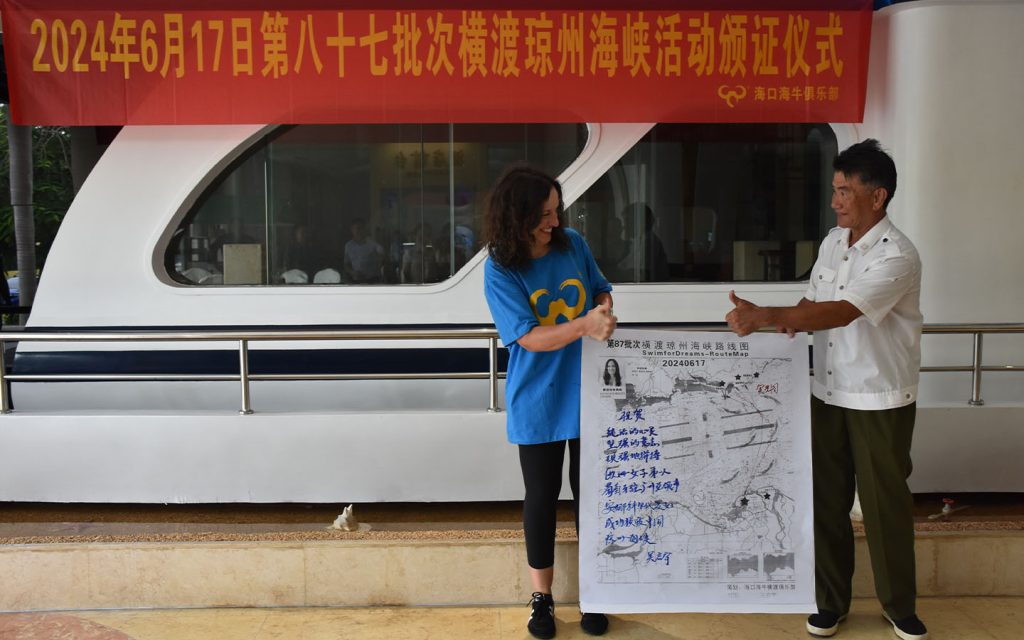
Firstly, how did your Hainan Strait swim come about?
I’ve always enjoyed swimming and I’d always wanted to try open water swimming, though not necessarily over such a long distance.
Then, last year, I had an official visit to Hainan’s Haikou. I met some representatives from a company that organises swims across the strait, and we talked about the possibility of me doing it. The Portuguese were the first Europeans to reach China by sea, so I thought swimming across the South China Sea would be a symbolic way for me to say goodbye to China.
But doing the swim in June this year felt right not only because I was leaving the country, but because in 2024 we are celebrating the fifth centenary of the birth of the Portuguese poet Luís Vaz de Camões. He connects Portugal in a special way to China because he lived for a while in Macao and he probably crossed the Hainan Strait himself at some point [laughs].
How did you prepare for the swim, and what challenges did you encounter while out there?
I didn’t have any special training. I just tried to swim at least three or four times a week, which wasn’t always easy because of my work. The maximum distance I swam before actually crossing the strait was just five kilometres.
The distance between the two shores [Haikou’s Meilisha to Guangdong’s Qing’an] is 19 kilometres. When you swim, however, it’s never as the crow flies because you have to try to avoid the current. It’s like a zigzag crossing and in the end, I swam 29.6 kilometres.
I had to swim for 13 hours and 5 minutes because I faced very strong currents. For two hours, I could not move. I was swimming, but I could not go forward because the currents were really strong.
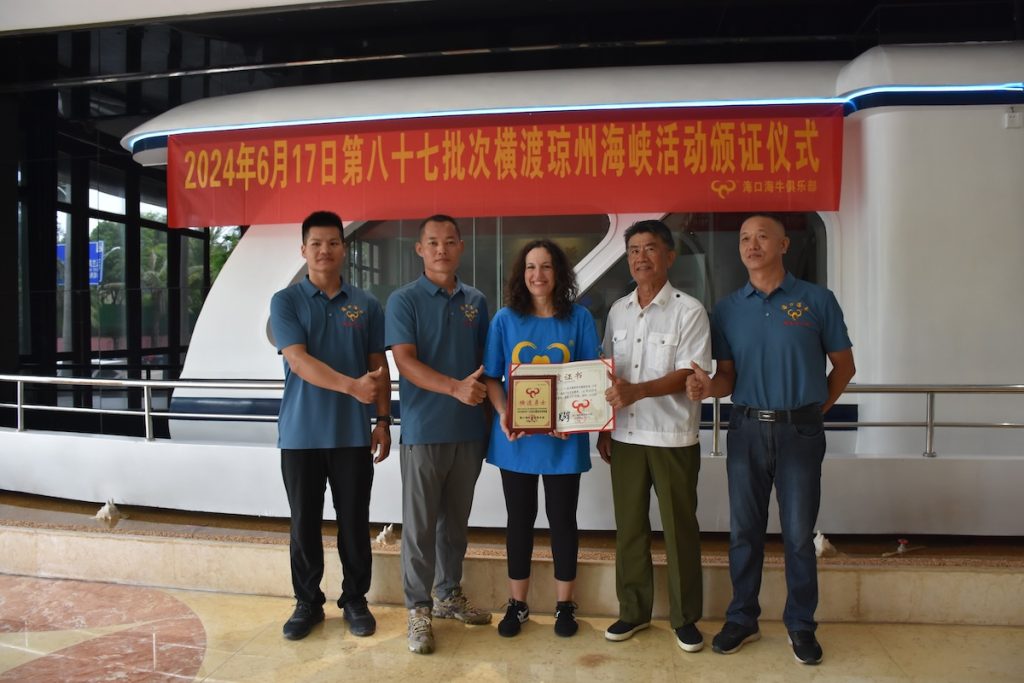
The hardest thing actually came later: sunburn from so many hours in the water. I don’t think I put on enough sunscreen. The crossing was an incredible experience, but physically it was the toughest thing I did in my entire life.
Now onto your time as Portuguese Consul-General. Tell us about your favourite experiences in the role?
Being Consul General in Guangzhou has been an incredibly enriching experience and it’s difficult to point out what I liked most about my work. But I can say that I really enjoyed organising, every year, the World Portuguese Language Day alongside the Consulate-Generals of Angola and Brazil. We organised the event twice in Guangzhou and once in Hunan. It involved several activities with the students and the teachers in universities in South China, where the Portuguese language is being taught.
There was another event that I really, really enjoyed, too. That was last year’s exhibition on the history of the Fado at the Cantonese Opera Museum. It was a very special event. The exhibition was in the museum for four months and was visited by 620,000 people.
We also organised, in association with AICEP Delegation in GZ and Tourism of Portugal in China, a very special event to promote Portuguese tourism and cuisine, entitled “Time to Taste Portugal,” which brought together several tourist operators from Guangdong and allowed to present Portugal as “Best Tourism Destination in Europe”.
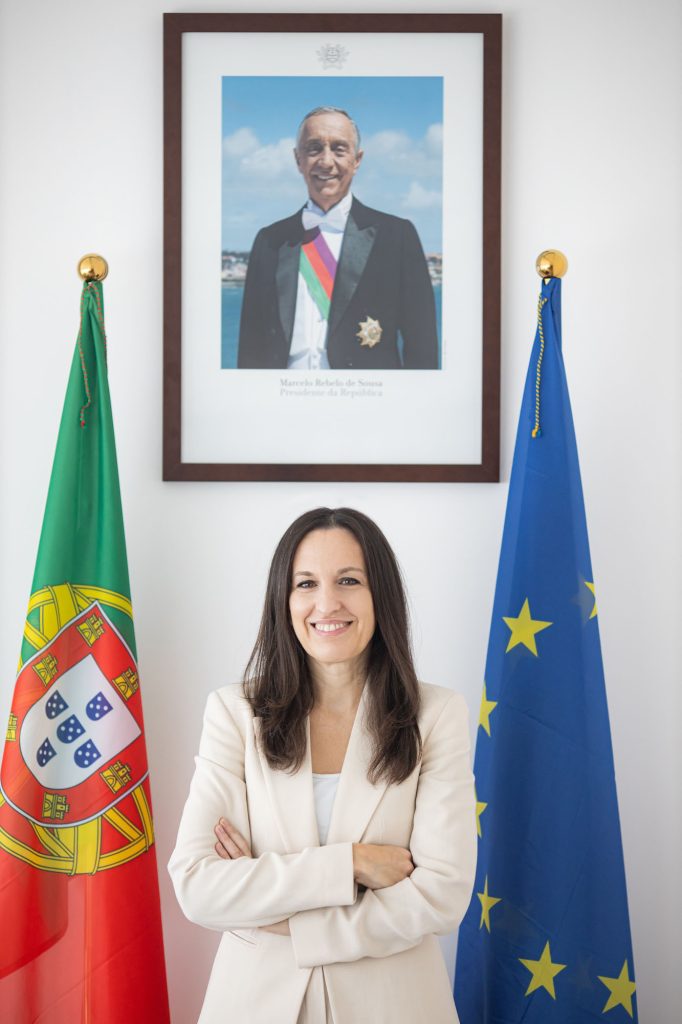
What were a few key commercial initiatives that took place during your tenure?
In 2021 and 2022, we organised e-commerce campaigns to promote the Portuguese food sector in China. These were called ‘Tales of Portugal’. We estimate that this initiative reached more than 5.5 million consumers and industry professionals.
We also supported a number of Portuguese brands entering China over the past three years. There was the IT company Sistrade, in Shenzhen, for example, and the luxury linens company Abyss Habidecor, which opened stores in both Shenzhen and Guangzhou.
This year, we also assisted ViniPortugal [a major Portuguese wine industry association] in organising a wine tasting event called ‘Wines of Portugal Grand Tasting-Guangzhou’. Sixteen Portuguese wineries were represented at the event, showcasing a total of 130 national wines. In 2023 we supported Portuguese companies and national wine distributors at Guangzhou’s ‘Interwine Fair’.
How about academic initiatives?
We oversaw the signing of a memorandum of understanding between China’s Southern University of Science and Technology (SUSTech) and the University of Porto in Portugal, and the signing of a new student exchange protocol between Portugal’s University of Coimbra and China’s University of Guangzhou.
We participated as speakers in the Sino-European International Forum on ‘Healthcare Reform and High-Quality Development’ – a joint project of China’s Southern Medical University (SMU) and the University Institute of Lisbon (ISCTE) in Portugal – which took place in Guangzhou last November.
Since 2009, SMU and ISCTE have run a joint doctoral program in Health Services Management. To date, it’s been attended by more than 300 professionals and senior managers in the health field, from all over China.
We also participated as speakers in the ‘Hainan Cultural Tourism 2023-International Forum on Sports, Leisure and Sports Tourism Development’ conference, at the invitation of Haikou University of Economics, to present Sports Tourism in Portugal.
With the aim of promoting the Portuguese language and culture, we have also held several initiatives in South China Universities. Allow me to mention that we organised four exhibitions to celebrate the centenary of Portuguese writer José Saramago’s birth [Saramago won the 1998 Nobel Prize in Literature] and two exhibitions celebrating the centenary of the Portuguese writer Agustina Bessa-Luís’ birth.
How would you describe the current state of Sino-Portuguese relations?
This year marks the 45th anniversary of the establishment of diplomatic relations between Portugal and the People’s Republic of China, and it’s a date full of significance. The official establishment of these relations, in 1979, allowed the consolidation of an already long-standing relationship based on mutual respect and trust – because ties between the two countries were first established in the 16th century, when the Portuguese explorer Jorge Álvares disembarked on the islands of the Pearl River Delta.
These ties are some of oldest between the West and the East. We have known each other for many centuries and this valuable heritage is important to highlight.
The 25th anniversary of Macao’s return to the People’s Republic of China will also be celebrated in 2024. This is a process that has proved there is mutual trust and openness in the relationship between the two countries.
Nineteen years ago, we signed a Global Strategic Partnership that still guides relations between China and Portugal today. We hope it will allow frequent political contact at all levels, but also deepen the economic and commercial relationship between our countries, expanding cooperation to new areas and taking advantage of the best each country can offer.
What will you miss most about Guangzhou?
Guangzhou is a very modern and impressive city with all its high-rise buildings and contemporary infrastructure. It’s also a very green and pleasant city.
Of course, I will miss all the friends and colleagues that I leave behind. I will miss the city lights, the Guangzhou Tower and Liede Bridge for sure, because I could see them every day from my office and also from home. And on a very personal note, I will miss the milk tea!
I have travelled quite extensively in China, a country with such a long and rich history, but there is still many things to see and visit, so I’m sure I will come back one day.

